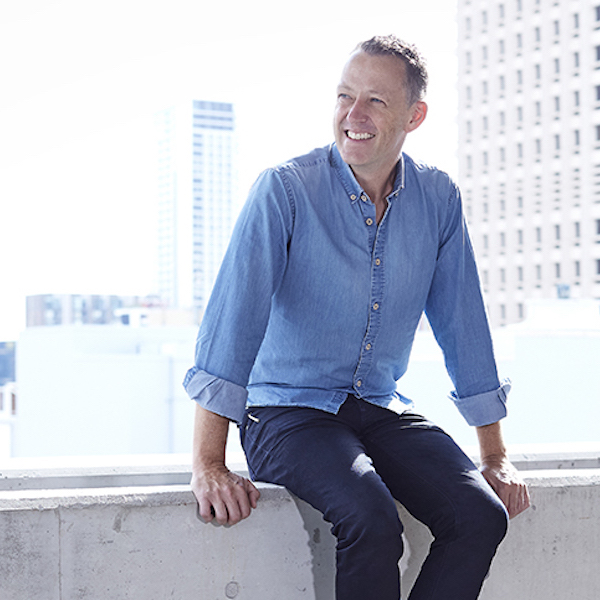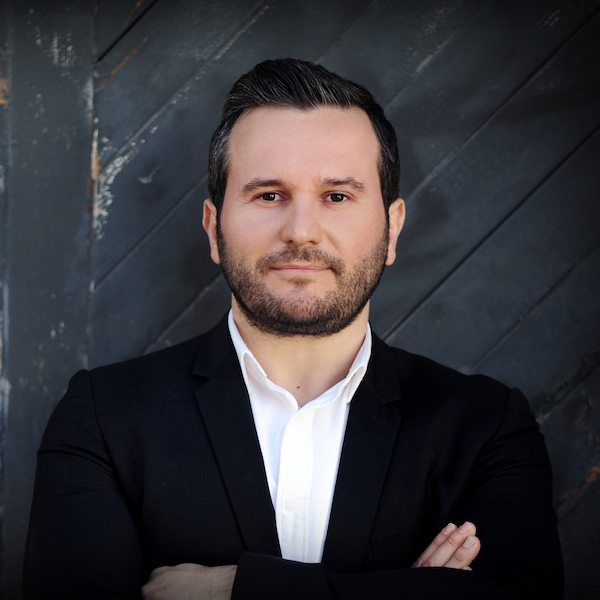Paving the way to a successful architecture career is a series of interviews conducted by SONA member, Chaim Lieder.
Chaim is currently pursuing a Master of Architecture at the University of Sydney while working at SJB.
During his undergraduate studies, Chaim observed a disconnect between education and industry, noting that many students, like himself, were struggling to break into the industry. The interview series with industry professionals shares perspectives on what graduates can do to successfully land a job and what are some of the tools students need to have an impactful career in the built environment.
Read through their interviews below.
SARAH LEBNER
Sarah Lebner is the Principal Architect at multidisciplinary Canberra firm, Light House Architecture and Science. She is the author of 101 Things I Didn’t Learn in Architecture School; And wish I’d known before my first architecture job, and the founder of myfirstarchitecturejob.com.
Sarah’s work explores evidence-based solutions for affordable energy efficient housing, and a determination to develop new systems for delivering well designed homes to everyday people.
Sarah was recently awarded the 2020 Australian Institute of Architects National Emerging Architect Prize.

Read Sarah's Q&A
What are the most important skills for students, graduates, and emerging architects to develop as they embark on their careers?
Solidify your soft skills
We often overlook the soft skills; they are so undervalued. Particularly the skill of understanding things about yourself like how you learn best and your strengths and weaknesses. Other soft skills such as communication and organization are also really important. These skills are highly regarded by employers and can be improved just like any other skill.
What are some unconventional ways students, graduates, and emerging architects can elevate their careers?
Proactive upskilling
Seek out opportunities to consciously hone your soft skills. They can be developed in a myriad of ways such as by taking courses on things like effective leadership or communication, reading books, listening to podcasts and simply observing industry leaders. It’s about self-assessing your skills in all these areas and proactively seeking ways to improve them, rather than relying on experience to do all the learning for you.
Supercharge your strengths
We often think about improving our weaknesses, but you can really elevate your career if you apply as much energy to supercharging your strengths. Sure, you can improve the things you think you’re weak at to remain competitive, but if you can also recognize your strengths and supercharge them like an elite athlete, you’ll become outstanding in that niche aspect of your work or personality.
What do you see as a challenge and opportunity facing the next generation of architects and how can they approach it?
I think the way we consume media is vastly changing and there’s a real challenge with how the architecture industry engages with and presents its value to the public. The challenge then becomes an opportunity as emerging generations are savvier and have a more advanced understanding of media and how to engage with it compared to older generations. I think that’s something that emerging architects should be quite aware of. There are so many platforms and ways that we communicate these days and as an industry, if we want to stay relevant, we need to engage with that and utilize it to evidence our value to the public.
What is a mistake one should avoid as they progress through their architecture career?
A rising tide lifts all boats
Be cautious of quick criticism about other architects. Early in our careers, it’s very easy to pass judgment on other architects/companies that are doing something differently or producing a different end product. As I’m progressing in my career, I’m learning more about giving people the benefit of the doubt and understanding that all architects are trying to do the best they can. Criticizing other architects can very directly damage your career because it’s a small industry and things inevitably come back around. From an industry perspective, this behaviour is how we get the reputation as an egotistical non-collaborative industry. There could be a quantum shift if we all band together and stop doing that, truly giving each other the benefit of the doubt and being there to support each other.
What was a transformational moment in your career?
When my architecture director resigned from our multidisciplinary practice leaving the opening of a principal architect. At the time I wasn’t really ready for the position, but I was the only obvious person to step into it. And I often talk about working out how you can turn a no into a yes. As in, it wasn’t about blindly stepping into the position. It was about saying okay, I can do this if I can find a way to support myself in the areas where I’m not ready. For me, that was about setting up a mentoring relationship and finding some other technical resources.
Another transformational moment was winning the national emerging architect prize purely just for psychological reasons. It was quite validating having the industry recognizing and valuing what you’re doing, that’s just been a huge thing for me.
What is the best piece of advice you have received?
One that sticks with me was to look after yourself because no one else will. It may sound harsh, but it stuck with me because it came from a very caring employer. His point was that in our relationships, in our work, in everything, it doesn’t matter how much we care for each other and support each other, we’re still very much in our minds and our worlds. And at the end of the day, the only person that’s going to get you where you want to be, or speak up when something needs to be said, is you.
ADAM HADDOW
Adam Haddow is a Director of SJB. As a studio, SJB is acclaimed nationally and internationally for their work. SJB’s buildings gestate in the belief that architecture should provide an armature for community life; that the activities buildings facilitate are just as important as the physicality of the buildings themselves.
Adam believes buildings should subtly embody ambitions of beauty, delight, joy and surprise.

Read Adam's Q&A
What are the most important skills for students, graduates, and emerging architects to develop as they embark on their careers?
I think there’s two critical skills for an architect:
Active listening
The most important skill is listening. Although architecture is an injective profession where you make things, what often goes overlooked is the ever so fundamental skill of listening. Whether it’s a client, council or a colleague, put yourself in their position and try to understand the underlying motivation behind the words they are saying. Our job as an architect is to create amazing spaces and a significant part of the process is demonstrating to your client that it’s indeed their idea and it is in their best interest.
Managing Complexity
The other skill is managing complexity. As architects, we have a vast and shallow knowledge base; we know a little about a lot of things and managing all of them to complete a project is challenging. Architects used to know ‘everything about everything’, but now there is a consultant for everything which adds another layer of complexity to a project. Construction itself is becoming much more complex. When I started my career, you could design a whole house and have it documented on 10 A1 pages. We’re doing a house at the moment, and we might end up with 150 A1 pages.
What are some unconventional ways students, graduates, and emerging architects can elevate their careers?
Take acting classes. So much about architecture is about the presentation, taking people on a journey, creating a dialogue and a sense of drama. Acting classes put you in a situation comparable to what happens when you’re a young architect: you have to do something you’re not very good at in front of people who are. When I first moved to Sydney, I did an acting class, because it was an easy way to meet people, it also coincided with me having to take that kind of a role in the practice. It was a great way to develop presentation skills and learn how to position an argument.
What do you see as a challenge and opportunity facing the next generation of architects and how can they approach it?
I suppose the biggest challenge is the unknown, and that’s been the same in every generation of architecture. When I was a graduate, we didn’t have mobile phones. The world changes very quickly and I think as society evolves, those changes are happening more rapidly. It’s important to become dexterous with the idea that things change and it’s important to keep your knowledge base up by actively educating yourself on whatever it is you are interested in, whether it’s different buildings, practice topologies, materials or urban design etc
The biggest opportunity is how we can better respond as a profession to the environment. We’ve gone through an incredible period of construction globally, particularly in Australia, but I believe we’ll eventually reach a stage where we’ll be reusing or adapting old buildings more than creating new ones. That’s something that emerging architects could capitalize on if that’s where their interest lies.
What is a mistake one should avoid as they progress through their architecture career?
Moving around too much in their career. Your career is long, and you want to stretch it out as much as you can. Obviously take opportunities, but lots of people jump around so often in their career that they never see a building finished. I think when you’re a young architect it’s really important to see the consequences of what you draw. You can only be a junior in an office once in your life and that’s such a great opportunity to take it all in. It doesn’t matter which part of the project you’re working on, whether you’re detailing bathrooms, looking at tile setouts, or investigating material properties, whatever it is, there’s meaningful design in that process.
One of my professors said that no architect will make a good building until they’re in their 40s. It takes a long time to work out what’s important, and where you should place your energy. People tend to think that things happen overnight, but it takes a long time to become good at anything, and it’s the same with architecture.
What was a transformational moment in your career?
I never used to be able to draw very well until one day when I had to present, and we hadn’t prepared any drawings. I didn’t have time to draw something on the computer, so I had to sketch it. I think sometimes that adrenaline rush you get when you don’t have a choice but to do it is really important. Honestly, I think that day I learnt how to draw.
What is the best piece of advice you have received?
For me, it’s probably from my parents just instilling in me the idea that you’re capable of doing anything you set your mind to. Architecture is fairly subjective, so it’s about finding what it is that you are genuinely interested in communicating through your work and investing time into that.
SHOBA COLE
Shoba Cole is a Senior Associate at CK Architecture, with expertise in the education sector.

Read Shoba's Q&A
What are the most important skills for students, graduates, and emerging architects to develop as they embark on their careers?
Researching
What you put into your career is what you get out. A career extends beyond the working day. Leaving University, the art of making is generally underdeveloped – nobody really knows how a building comes together. Therefore, being willing to research and understand how a building is constructed and exploring different typologies will be really beneficial to your career development.
Networking
Networking and maintaining university and professional links. As you progress in your career those relationships are quite handy. Although you may think the industry is competitive, being able to ring up your mate at another practice and ask about a particular product they used for example, is really helpful. As a profession we must foster knowledge sharing so we do right by the community.
What are some unconventional ways students, graduates, and emerging architects can elevate their careers?
Pursue creative hobbies
I always encourage people to pursue creative hobbies outside of architecture that interest them. Some examples may be pottery, photography, painting or travelling. Everyone that knows me knows that I love to travel, I find that it opens you up to entirely new experiences. The discomfort associated with trying new things and visiting unfamiliar places is character building. Novelty is good for the brain, and it builds resilience, which will definitely benefit you in your career.
What do you see as a challenge and opportunity facing the next generation of architects and how can they approach it?
Shrinking timeframes
I think a challenge is the consistent shortening of timeframes. Tighter timeframes often result in lower quality work and can create problems down the line as there is less time to dissect the brief, less time to design and ultimately less time to construct. Improving your time management and resourcing effectively can help combat this challenge, as well as learning to manage client expectations and tailoring their expectation to the time accurately and honestly.
Collaboration
Advancements in technology and Covid-19 has led to the rapid adoption of video conferencing. This has opened the door to a new way of collaboration on a global scale. There is a tremendous opportunity for new and innovative partnerships and collaborations in the architecture space, and this could really bring a new dimension to the profession and the spaces we design.
What is a mistake one should avoid as they progress through their architecture career?
Diversity in experience
Doing the same thing for a long time works perfectly well for certain people, but I believe there are diverse experiences to be had across various practice methodologies and building typologies. Broad exposure will add many new skills and experience to your toolbox, ultimately making you a more holistic architect.
What was a transformational moment in your career?
I started out my career doing heritage based projects. A transformational moment for me was when I was 28 and realised that I had I missed mainstream architecture. Although I hadn’t done mainstream architecture for some time, someone gave me a chance, transforming the trajectory of my career. Another transformational moment was my exposure to some personalities early on in my career that demonstrated what I don’t want to be. Those experiences transformed the way I approach junior staff, whom I realised look up to their seniors on all thing beyond architecture. I learnt the importance of building people and not focussing on their mistakes.
What is the best piece of advice you have received?
Understand that you are unique in your experiences, strengths and weaknesses. Nobody is going to possess the same strengths and weaknesses as you and therefore you must learn how to work with people who have different styles of working to you.
PAUL BULJEVIC
Paul Buljevic is the Managing Director at PBD Architects. He has extensive experience in the design of residential housing and mixed-use developments of varying scale.
Paul’s knowledge of the processes involved in bringing a project to fruition stem from a history of working closely with Property Developers from early stages of site acquisition through to building procurement and Project Marketing.

Read PAUL's Q&A
What are the most important skills for students, graduates, and emerging architects to develop as they embark on their careers?
Developing a holistic approach
I believe to be a holistic architect you must be a holistic person first and foremost. Early in your career, you don’t know what you don’t know, therefore you must put work in on your own accord, to sharpen your skillset across the broad spectrum of architecture and beyond. Try to expose yourself to and understand as much as you can, from the relevant software to how an office works. You want to be involved in projects from inception to completion, understand what happens in its delivery, what happens during procurement, and everything in between. The sooner you can get that overarching experience, I believe the more holistic and competent architect you will be.
What are some unconventional ways students, graduates, and emerging architects can elevate their careers?
What you’re doing shows a lot of initiative. Getting involved in extracurricular endeavours that you don’t necessarily need to be doing because you’ve got a passion for what you do and want to help other people is a great thing and will definitely elevate your career.
What do you see as a challenge and opportunity facing the next generation of architects and how can they approach it?
When I went to university, we had a professor who talked at length about the connection one has hovering above a drawing table with the hand, the mind, the paper and the pen. Unfortunately, the hand skills are not necessarily there with the next generation. They lack the ability to sketch in front of a client and resolve something in plan or elevation immediately without having to say sorry, I have to come back to you in a couple of days after I’ve modelled it. There’s a disconnect due to the lack of understanding that comes from the repetition of having looked at a problem in three dimensions with your hand and your mind so many times.
The greatest opportunities come from identifying deficiencies around you and developing your skillset around them. If you’ve got a new generation that’s all moving in a certain direction, how do you make yourself stand out in that pack? Carrying on from the last example, an opportunity may lie in the ability to develop a better understanding of the connection between a pen and paper. This can enable you to explore options so much quicker and can give you a more intimate understanding of size and proportion and how things are put together.
What is a mistake one should avoid as they progress through their architecture career?
Early in your career when you’re learning from those above you, it’s easy to pick up their traits unconsciously. It wasn’t until later in my career that I found out that when someone in a higher position says something, it doesn’t necessarily mean that it’s correct or the best way to do things. Everybody’s got their path and you want to believe in what you’re doing in your career. Don’t just accept things at face value, do your research and come to your own educated conclusions.
What was a transformational moment in your career?
There’s no doubt it was when I started my own practice. I don’t think I was ever the same person before that as I was after that, mainly in mindset. It changes your whole perception of how you deal with people and every situation really. The ground-breaking moment was making that
decision although there were definitely other defining moments during that initial two or three year period where you develop a regular client pattern, and your brand begins to gain exposure.
What is the best piece of advice you have received?
One of my mentors would say that if you have aspirations around starting your own practice you need to get out there and meet people, sitting in front of a computer all day is not actually how the world works. You need to understand that there are so many opportunities out there and people that are doing things in architecture. Networking exposes you to many people and entities, where it can take you in life is amazing and that is obviously amplified when you have your own practice.
AMY MUIR
Amy Muir is director of MUIR. MUIR is underpinned by a belief in unsolicited and project-based research and investigations into the role of the civic. One of the practices key preoccupations is in architecture’s ability to engage with the collective and memory. By investing public work with the language of memory and place, MUIR hopes to speculate on a new civic architecture.
Amy is committed to supporting the education of young architects and has guest lectured at various universities alongside her current role as at RMIT. As Victorian President of the Australian Institute of Architects, Amy liaises with state and local government agencies advocating, reviewing and establishing design leadership and policy development through collaboration.
Amy received the 2016 Australian Institute of Architects National Emerging Architect Prize in recognition of her contributions to the profession through design excellence, education and industry leadership.

Read Amy's Q&A
What are the most important skills for students, graduates, and emerging architects to develop as they embark on their careers?
Challenging yourself
We can all be complacent when it comes to learning new skills and undertaking challenging endeavours. Being open to new challenges plays a very important role in the development of your career. Life is not linear but evolves through a series of unpredictable trajectories that should be travelled with curiosity and passion.
Asking for opportunities
As you become more engaged within practice, seek out opportunities by asking to be involved in different aspects of the practice. Demonstrating initiative is an extremely valuable skill. Different scaled practices provide different opportunities and insights into the profession so do consider opportunities that will enable you to broaden your knowledge and skill base. In saying that, don’t just jump around from practice to practice, that is counterproductive to career growth. Bear in mind that longevity + engagement = opportunities.
What are some unconventional ways students, graduates, and emerging architects can elevate their careers?
Students often disregard any extracurricular activities/jobs that they once had or are currently involved in if it is not explicitly related to architecture. Architecture touches just about everything. The interpersonal, communication and leadership skills acquired by working at a supermarket, volunteering in your community or coaching a junior basketball team can be directly translated into the architecture profession and can contribute to a meaningful career.
What do you see as a challenge and opportunity facing the next generation of architects and how can they approach it?
Time
Time is a precious commodity, and it is constantly being taken and stripped from contracts. We have seen the detrimental impacts this has had on the quality of projects and the health and wellbeing of employees. As a profession, we need to be addressing these issues collectively in order to make incremental and holistic improvements industry wide.
Technology
Technology is advancing rapidly and has enabled us to seamlessly work from home during COVID19. We simply wouldn’t have been able to do this 10 years ago. Understanding the power of technology and the evolution of the tools we design with is an opportunity that should be embraced and pushed.
What is a mistake one should avoid as they progress through their architecture career?
Holding back when an opportunity arises. See an opportunity – pursue it.
What was a transformational moment in your career?
University was transformational for me as it was the first time that things really started to open up and provid
Part way through studying Interior Design at RMIT University I was keen to go on exchange for a semester in the UK. It was in the early days of exchange programs and so a little more ad hoc and self-directed to organise. After 6 months of failed attempts to arrange a placement within an interior design school I was encouraged to study architecture for a semester. Two weeks later I was on a flight to the UK with a placement at Oxford Brookes University. I ended up staying on for a year and a half. It is an opportunity that I wouldn’t have had if I wasn’t open and receptive to new ideas.
What is the best piece of advice you have received?
Question everything
Remember to always question in order to understand.
Speak up
Early in your career, you can feel timid and unsure of your place in the ecosystem of practice and the industry at large. However, it is important to speak up and find ways to be involved in areas that you feel passionate about. Advocacy is an incredibly important part of life and the professions we choose to be part of. Find ways to support your peers as they will be by your side for the remainder of your career. These friendships are very special and incredibly important.